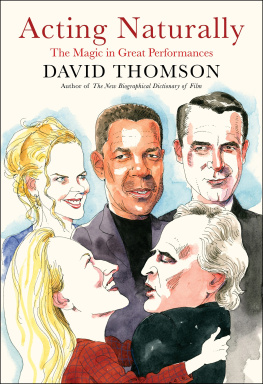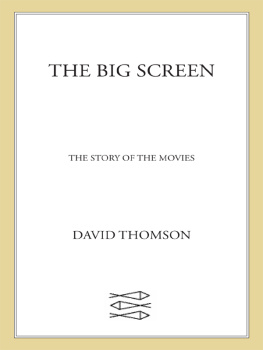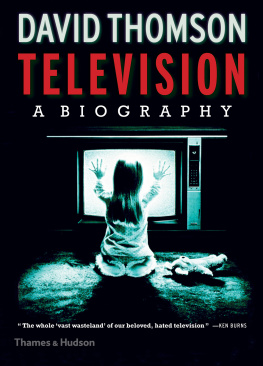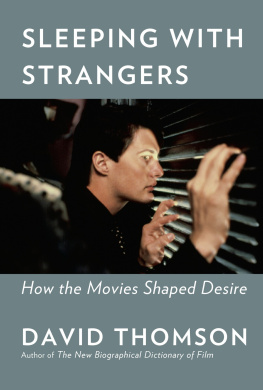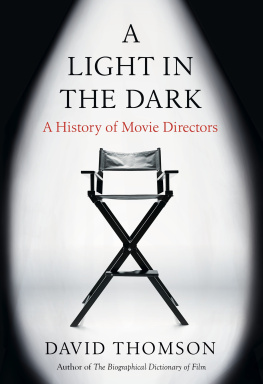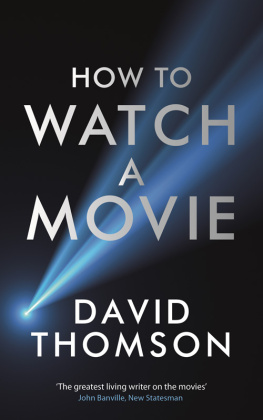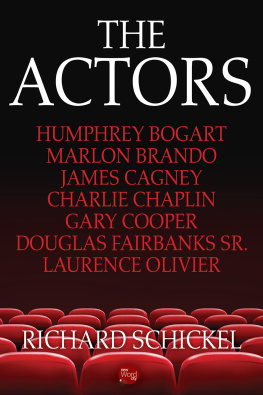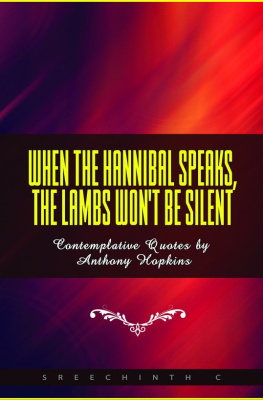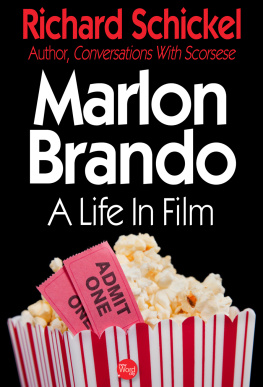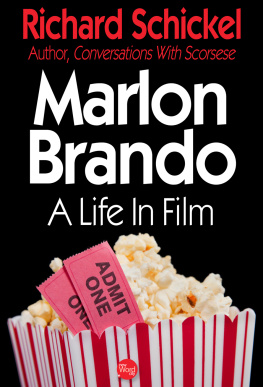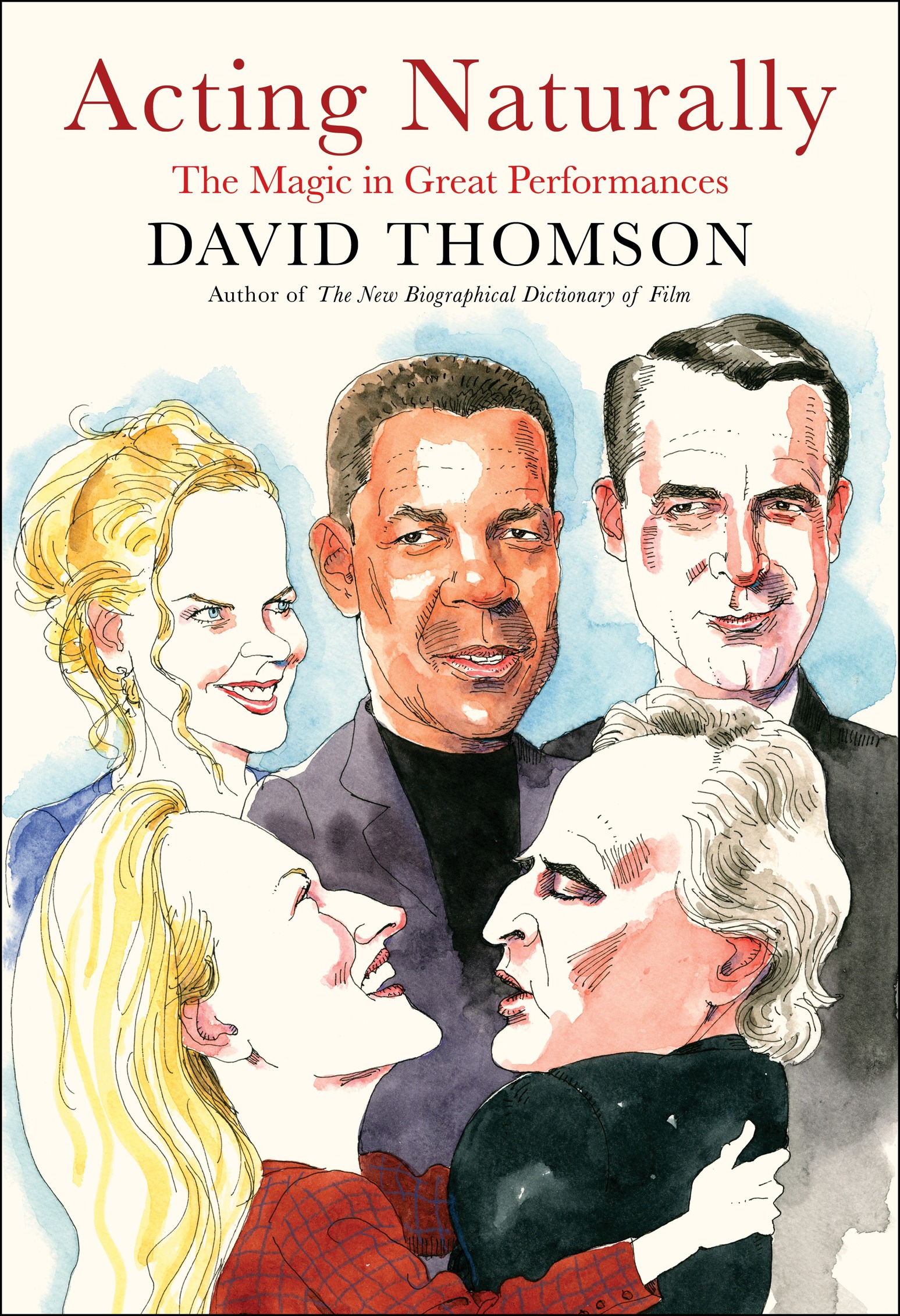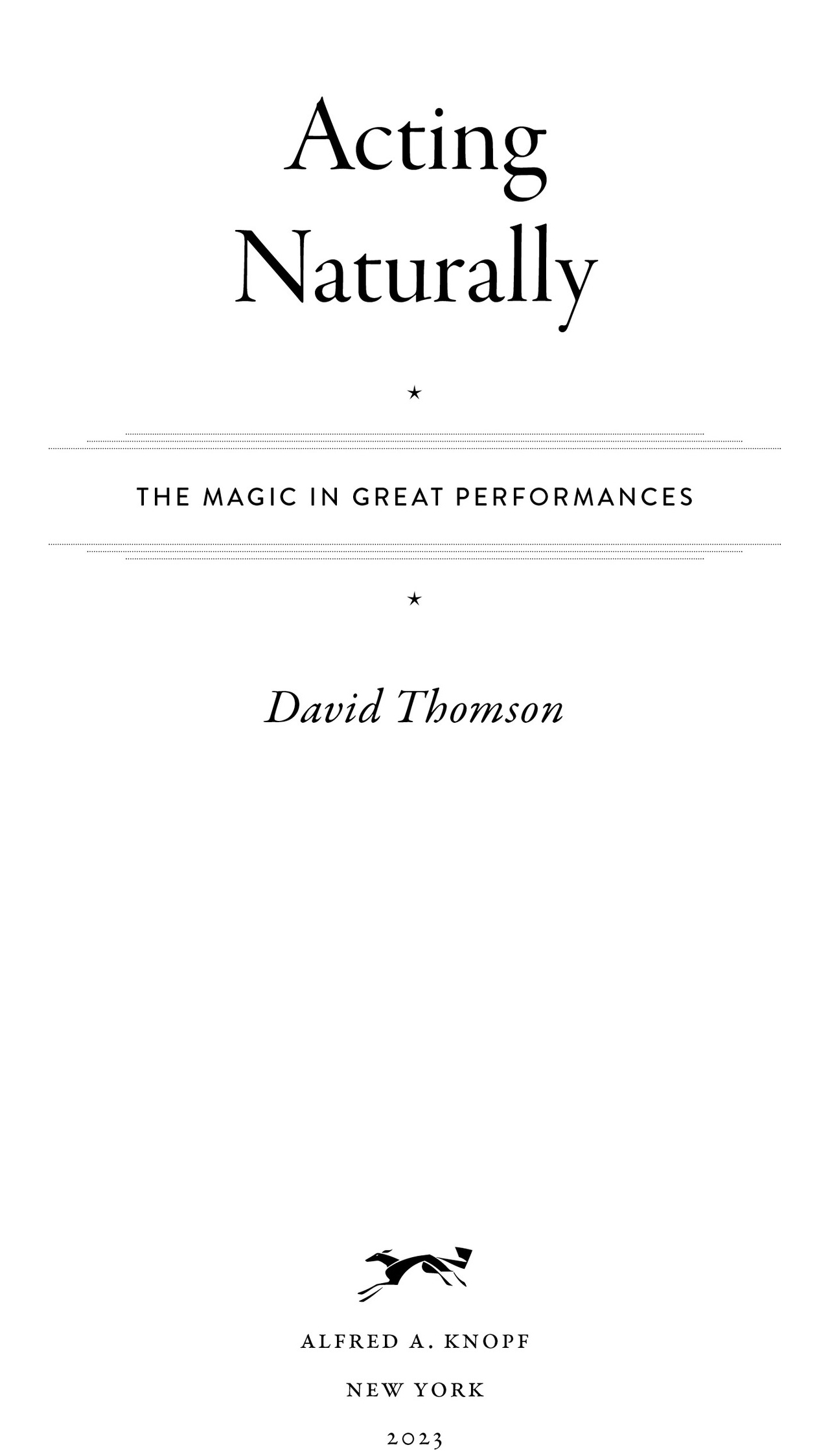Also by David Thomson
Disaster Mon Amour
A Light in the Dark
Sleeping with Strangers
Warner Bros: The Making of an American Movie Studio
How to Watch a Movie
Television: A Biography
Why Acting Matters
Moments That Made the Movies
The Big Screen: The Story of the Movies
Have You Seen?
Nicole Kidman
The Whole Equation
The New Biographical Dictionary of Film
In Nevada: The Land, the People, God, and Chance
The Alien Quartet
Beneath Mulholland: Thoughts on Hollywood and Its Ghosts
Rosebud: The Story of Orson Welles
Showman: The Life of David O. Selznick
Silver Light
Warren Beatty and Desert Eyes
Suspects
Overexposures
Scotts Men
America in the Dark
A Biographical Dictionary of Film
Wild Excursions: The Life and Fiction of Laurence Sterne
Hungry as Hunters
A Bowl of Eggs
Movie Man
This Is a Borzoi Book Published by Alfred A. Knopf
Copyright 2023 by David Thomson
All rights reserved. Published in the United States by Alfred A. Knopf, a division of Penguin Random House LLC, New York, and distributed in Canada by Penguin Random House Canada Limited, Toronto.
www.aaknopf.com
Knopf, Borzoi Books, and the colophon are registered trademarks of Penguin Random House LLC.
Library of Congress Cataloging-in-Publication Data
Names: Thomson, David, [date] author.
Title: Acting naturally : the magic in great performances / David Thomson.
Description: First edition. | New York : Alfred A. Knopf, 2023. | This is a Borzoi Book published by Alfred A. Knopf. |
Identifiers: lccn 2022003065 (print) | lccn 2022003066 (ebook) | isbn 9780593319291 (hardcover) | isbn 9780593319307 (ebook)
Subjects: lcsh : Motion picture acting. | Motion picture actors and actresses.
Classification: lcc pn 1995.9. a 26 t 48 2023 (print) | lcc pn 1995.9. a 26 (ebook) | ddc 791.4302/8dc23/eng/20220706
lc record available at https://lccn.loc.gov/2022003065
lc ebook record available at https://lccn.loc.gov/2022003066
Ebook ISBN9780593319307
Cover illustration by Joe Ciardiello
Cover design by John Gall
ep_prh_6.0_142435018_c0_r0
For Zachary Gray Thomson
People are not interested in watching normalcy on the screen; its boring. They see it in life. You have to have a certain craziness, be a little different, otherwise youre not interesting to watch. Actors to me arent interesting people. Most of them are introverted, very dull, scared. But they hold back their real lives and can only act it out in their fantasies.
Robert Evans, talking to Lawrence Grobel, Conversations with Robert Evans
As I started down the passage behind the back wall of the stage at the Old Vic, I tried to keep each foot flat to the ground as it trod the floor; this stiffened up the foot and constricted the leg muscles and, I feared, looked rather comical. I then tried to relax the foot, without placing the heel down first but putting my whole weight on each foot in turn as it touched the ground, thus introducing those swaying hips so generously commented upon, and regarded as the keystone of an elaborate characterization.
Laurence Olivier, on going barefoot as he prepared to play Othello , from Confessions of an Actor
_142435018_
Introduction
Belated Thanks
It should become apparent that this book is a love letter, not just to actors but to their magic. I am referring not simply to the job or the art, and the uneasy balancing of the two approaches, but to those of us who have resorted to acting as a way of life and of being with other people, and as a retreat from insoluble matters. So a troubled note of thanks goes to my father.
Dad never acted professionally, but at times in his life he was involved in what was called amateur dramatics. He was a member of companies that performed locally. He was never paid for this, and the companies depended on people giving their time without thought of recompense. Amateur dramatics workedand it still does everywherebecause there are those of us who like to pretend. Its not that we believe we are good at it, but we are volunteers out of emotional necessity. That spirit covers the audience as well as the players.
There was a time when Dad took me to a theatre, and then led me backstage to meet some of the actors. He must have worked with them sometimes. I regret that I never thanked him for that. For the chance to see. How could I identify that need, aged four? Dad did not provide a context for that meeting. He did not say, Look, these are actors. You should think about what they do, how astonishing they are onstage, and how commonplace in life. That might be something for you, a guide or a warning.
He never said anything like that, but that was because he did not care to talk about matters of life. That included the odd way in which he came and went. I never saw Dad on a stage because that part of him was in the other life he led, the one thirty-five miles or so away from me and Mum and the theory of what was called our family.
I have no idea if he had any thought that I might become an actor. Yet perhaps he wanted me to behold pretending, as if it was a view of countryside that he had discovered and wanted to share. Could pretending (or presenting a self) cover up for his frightening inability to talk about life, let alone his emotions or wishes? Or any admission that he had such things? He was an enclosed person, unable to let any feeling show, yet I think he was gripped by the idea of putting on a performance. The one thing he liked to do was tell stories or jokes, and acting was close to that.
How common is this? I dont know, but in studying actors I have found a similar gap between the sheer delight in becoming someone else and a corresponding reserve or helplessness in being ourselves. That is why I find now that I like or love all actors. Plainly, there are degrees of effectiveness or talent, the measure by which some actors are famous while others remain unrecognized or secret. And we hope to manage this complicated process with an air of being natural. But the wish to tell stories to cover up ones absence or insignificancethat beckons my attention. I think it is what makes an audience, and a society.
When we go to see actors, we have two opposed purposes: to step away from ourselves, but then to find our reflection in the show. So actors are like explorers, eager to discover something new but driven to discard their awkward selves. Captain Scott wanted to stand at the South Pole, but maybe he was trying to escape his world. He managed both. This is odd and contradictory, yet I think it is a model for how many of us try to live. So acting intensifies selfhood (it entertains us and makes us feel larger) but it also helps us forget the fear of being empty. My father was often vivid or emphatic (a bit of a character, some said), but always in an evasive way. He was there and not there.

